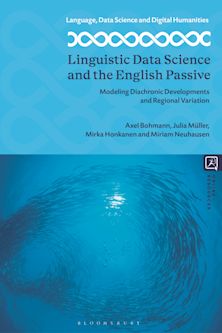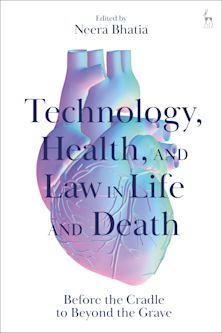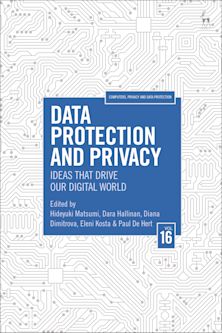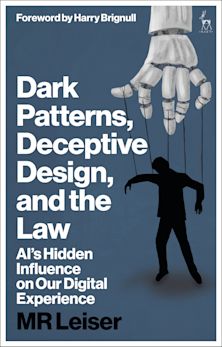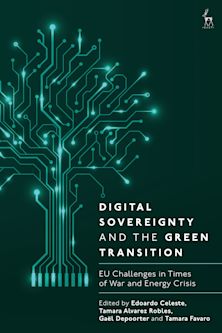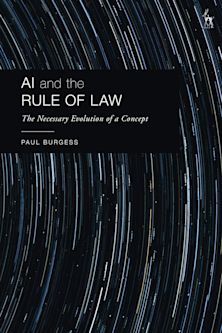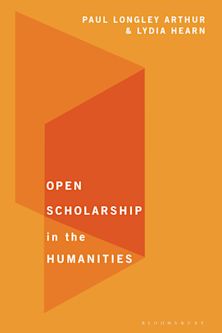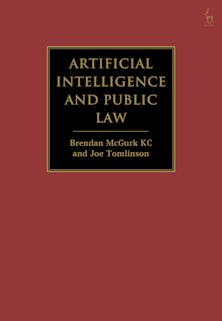Conceptions of Data Protection and Privacy
Legal and Philosophical Perspectives
- Open Access
Conceptions of Data Protection and Privacy
Legal and Philosophical Perspectives
- Open Access
Payment for this pre-order will be taken when the item becomes available
This product is usually dispatched within 2-4 weeks following the publication date
- Delivery and returns info
-
Flat rate of $10.00 for shipping anywhere in Australia
Description
This open access book offers a clear and concise overview of leading conceptions of data protection and privacy, exploring their social value through philosophical theorisations and European and US-American legal perspectives.
Featuring prominent experts and emerging scholars, the book presents diverse understandings to showcase the multifaceted interests and values embedded in the concepts of data protection and privacy. It links philosophical and legal perspectives on privacy to historical and contemporary rights struggles. The book also addresses privacy challenges posed by the digital revolution, including advances in AI, and recent efforts to safeguard privacy.
Aimed at scholars, researchers, and students in law and philosophy, the book covers key theoretical and legal positions on privacy and data protection. Legal practitioners will find insights into landmark EU and US constitutional decisions, such as the German Constitutional Court's Census Decision and Carpenter v United States. Additionally, it is valuable for anyone seeking to understand the legal and philosophical foundations of globally influential regulations like the GDPR and the AI Act.
The ebook editions of this book are available open access under a CC BY NC ND 4.0 licence on bloomsburycollections.com. Open access was funded by the Max Planck Institute for the Study of Crime, Security and Law.
Table of Contents
Part I: Privacy and Data Protection: The Value of Definitions and the Protected Goods
1. Defining Away Our Privacy, Anita Allen (University of Pennsylvania, USA)
2. Conceptualising the Protected Interests in Data Protection Law, Marion Albers (Hamburg University, Germany)
3. Commentary on Marion Albers, Johannes Masing (Freiburg University, Germany)
4. Resubstantivising Data Protection Rights, Ralf Poscher (Max Planck Institute for the Study of Crime, Security and Law, Germany)
Part II: Data Protection and Privacy in German, European and US-American Constitutional Law and Jurisprudence
5. Data Protection in German Constitutional Law: Overview of Basic Concepts and Mechanisms in the Case Law of the Federal Constitutional Court, Gabriele Britz (Frankfurt University, Germany)
6. European Data Protection Law: Don't Let It Be (Forever) Misunderstood, Gloria González Fuster (Vrije Universiteit Brussel, Belgium)
7. Carpenter v United States: Syllabus and Justice Gorsuch, Dissenting, Neil Gorsuch (US Supreme Court)
8. Property Rights in the Movable and Immovable: A New Constitutional Framework for Privacy in the Internet Age, Timothy Tymkovich (United States Court of Appeals for the Tenth Circuit) and Theodore R Furchtgott (Stanford Law School, USA)
Part III: European Privacy and Digital Law: The Role of Trust and of the Transatlantic Digital Economy
9. The GDPR as Mid-Atlantic Regulation, Maria Grazia Porcedda (Trinity College Dublin, Ireland)
10. Trust in Privacy Law, Johannes Eichenhofer (Leipzig University, Germany)
11. Beyond Digital Pessimism: How a Focus on Trust Can Enhance EU Digital Law, Neil Richards (Washington University in St. Louis, USA), Woodrow Hartzog (Boston University, USA), Claire Boine (Washington University Law School, USA) and Lea Despotis (Washington University in St. Louis, USA)
Part IV: Data Protection as a Procedural Limitation of Public Power, and the Power to Delimit the Public and the Private
12. Ominous Progression of European Constitutionalism. A Political Account of the Fundamental Right to Privacy and Data Protection, Paul De Hert (Vrije Universiteit Brussel, Belgium)
13. A Fundamental Right to Data Protection - or Rather a Rule of Law for the Digital Age? A Search for Clues in Judicial Procedural Law, Nikolaus Marsch (Saarland University, Germany)
14. Obscurity and the Fallacy of No Privacy in Public Information, Woodrow Hartzog (Boston University, USA)
15. What's Private and What's Public? On Defining a Contested Line, Beate Rössler (University of Amsterdam, the Netherlands)
Part V: Privacy in Society: Technology Challenges, Individuals' Autonomy and Freedom
16. Countering Privacy Nihilism, Severin Engelmann and Helen Nissenbaum (Cornell University, USA)
17. On the Nexus between Privacy and Autonomy: A Contextual Integrity Approach, Elisa Orrù (Max Planck Institute for the Study of Crime, Security and Law, Germany)
18. Privacy in Light of Critiques of Autonomy or: Privacy as Freedom to Change, Tobias Matzner (Paderborn University, Germany)
Product details
| Published | 19 Mar 2026 |
|---|---|
| Format | Hardback |
| Edition | 1st |
| Extent | 424 |
| ISBN | 9781509983728 |
| Imprint | Hart Publishing |
| Dimensions | 234 x 156 mm |
| Series | Hart Studies in Information Law and Regulation |
| Publisher | Bloomsbury Publishing |





















